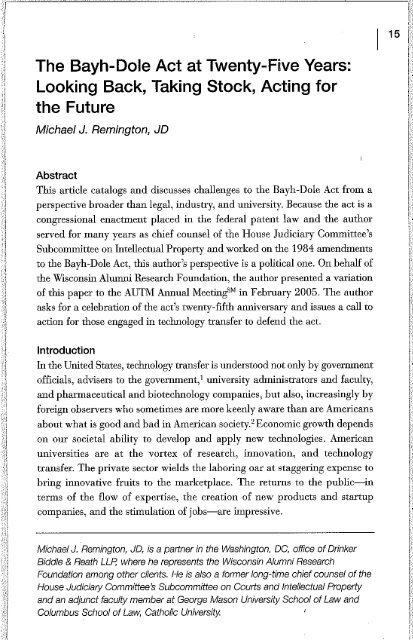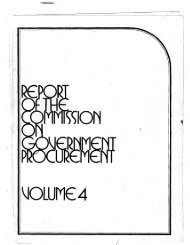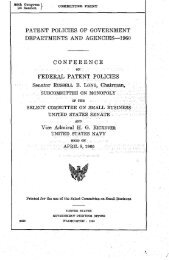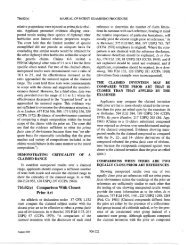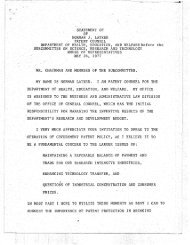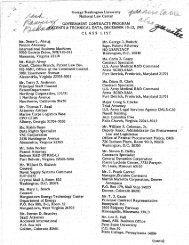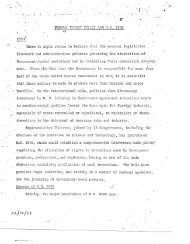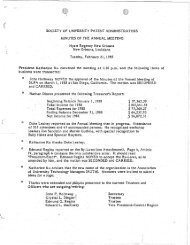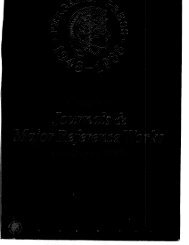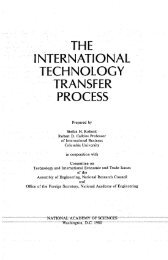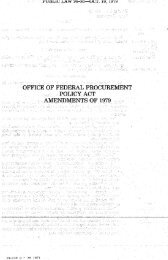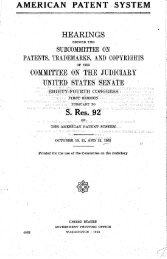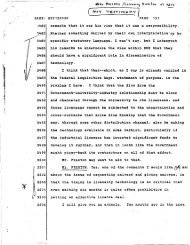~Iri,n - Bayhdolecentral
~Iri,n - Bayhdolecentral
~Iri,n - Bayhdolecentral
Create successful ePaper yourself
Turn your PDF publications into a flip-book with our unique Google optimized e-Paper software.
The Bayh-Dole Act at Twenty-Five Years:<br />
Looking Back, Taking Stock, Acting for<br />
the Future<br />
Michael J. Remington, JD<br />
Abstract<br />
This article catalogs and discusses challeuges to the Bayh-Dole Act from a<br />
perspective broader than legal, industry, and university. Because the act is a<br />
congressional enactment placed in the federal patent law and the author<br />
served for many years as chief counsel of the House Judiciary Committee's<br />
Suhcommittee on Intellectual Property and worked on the 1984 aroendments<br />
to the Bayh-Dole Act, this author's perspective is a political one. On behalf of<br />
the Wisconsin Alumni Research Foundation, the author presented a variation<br />
of this paper to the AUTM Annual Meetings" in February 2005. The author<br />
asks for a celebration of the act's twenty-fifth anniversary and issues a call to<br />
action for those engaged in technology transfer to defend the act.<br />
Introduction<br />
In the United States, technology transfer is understood not only by govermnent<br />
officials, advisers to the government, l university administrators and faculty,<br />
and pharmaceutical and biotechnology companies, but also, iucreasingly by<br />
foreign observers who sometimes are more keenly aware than are Americans<br />
about what is good and bad in American society.' Economic growth depends<br />
on our societal ability to develop and apply new technologies. American<br />
universities are at the vortex of research, innovation, and technology<br />
transfer. The private sector wields the laboring oar at staggering expense to<br />
bring innovative fruits to the marketplace. The returns to the public-in<br />
terms of the flow of expertise, the creation of new products and startup<br />
companies, and the stimulation of jobs-are impressive.<br />
Michael J. Remington, JD, is a partner in the Washington, DC, office of Drinker<br />
Biddle & Reath LLp, where he represents the Wisconsin Alumni Research<br />
Foundation among other clients. He is also a former long-time chief counsel of the<br />
House Judiciary Committee's Subcommittee on Courts and Inteilectual Property<br />
and an adjunct faculty member at George Mason University School of Law and<br />
Columbus School of Law, Catholic University:<br />
I 15


